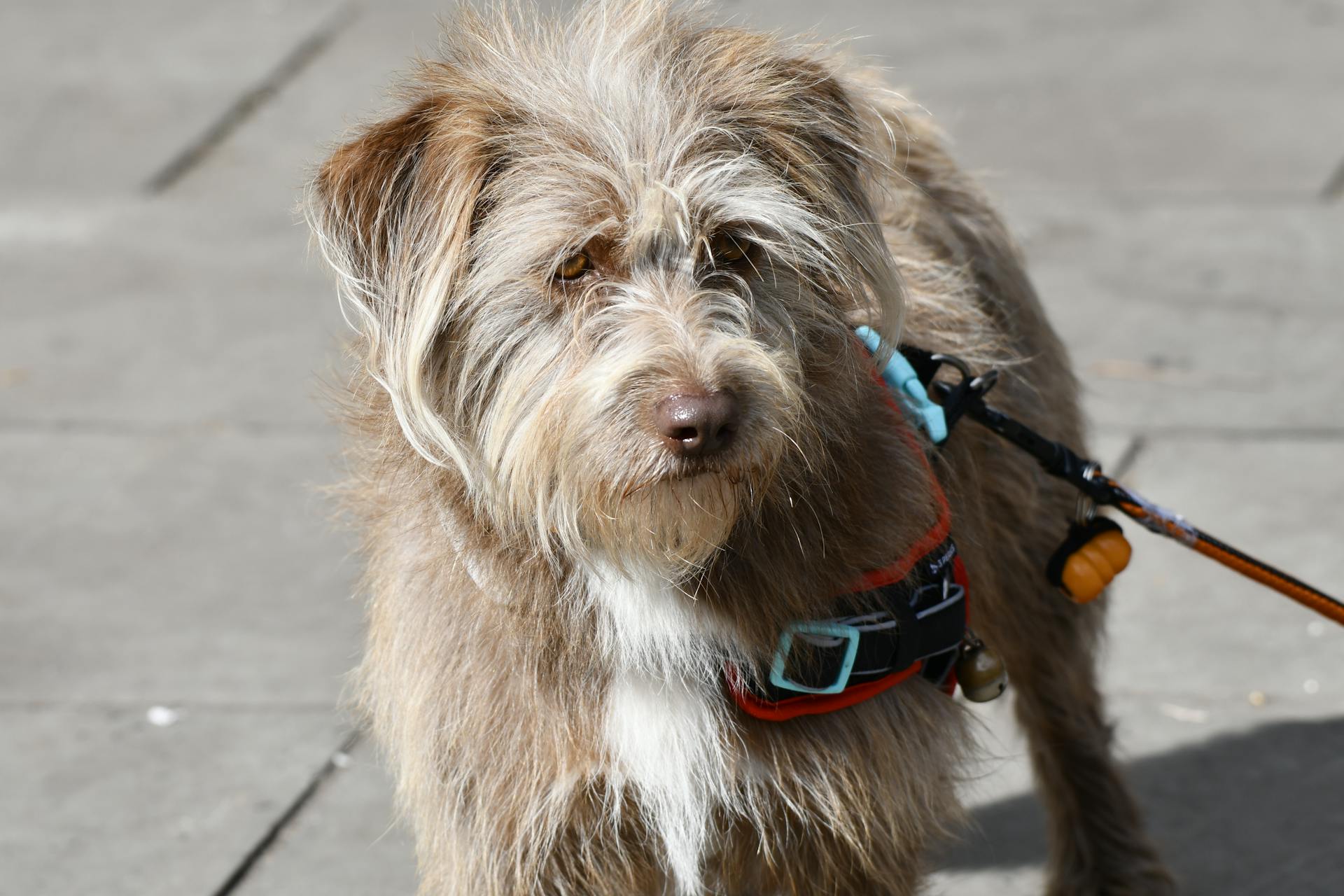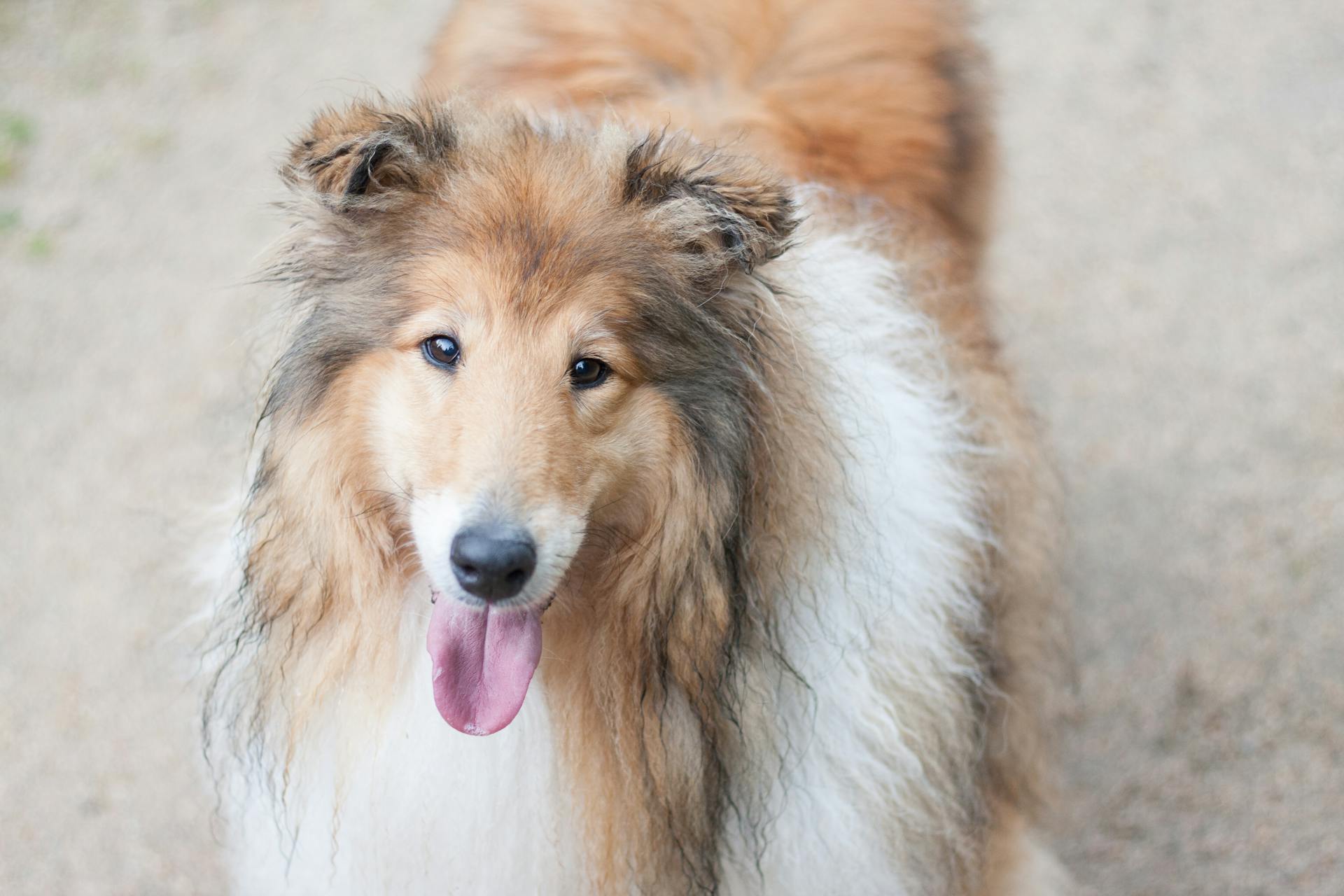
The Long Haired Dutch Shepherd is a unique and beautiful breed. They have a thick, double coat that requires regular grooming to prevent matting.
Their thick coat also makes them well-suited for cold climates, but they can still overheat in warm weather if not provided with adequate shade and water.
They are highly intelligent and trainable, but can be strong-willed and independent at times. This makes them a great fit for experienced dog owners who can provide consistent training and socialization.
Care and Maintenance
As a long-haired Dutch Shepherd owner, you'll want to get into a regular grooming routine to keep your furry friend looking and feeling their best.
Weekly grooming is a must for long-haired Dutchies, which includes brushing with a slicker brush followed by a comb to remove tangles.
You'll need to brush out your dog every week, and daily during shedding season, which typically occurs in spring and fall.
During these times, a slicker brush and deshedding tool will be your best friend in helping get rid of loose, dead hair.
Bathing your long-haired Dutch Shepherd is far less complicated than you might think - they only need a bath every four to six weeks.
Make sure to do a weekly once-over of their ears and teeth to keep an eye out for any signs of infection or dental issues.
Brush your dog's teeth daily, and schedule an annual visit to your vet for a professional dental cleaning.
And don't forget to clip your Dutch Shepherd's nails once a month to prevent them from getting uncomfortably long.
You'll know it's time for a trim when you hear their nails clacking on hard surfaces.
Training and Diet
Training your Long Haired Dutch Shepherd requires patience, consistency, and positive reinforcement. They thrive on structure and clear direction, so short, active training sessions are best.
Their intelligence and strong work ethic make them excel in training that tests their physical prowess and mental abilities. Collaborating with a skilled trainer who is familiar with working dogs can address breed-specific training needs.
Daily decompression walks and enrichment activities are ideal for your Long Haired Dutch Shepherd, and they do best with pet parents who are patient and can work at their pace.
To keep your dog stimulated and focused, prioritize high-quality proteins such as chicken, beef, or fish in their diet. Opt for balanced formulas approved by the Association of American Feed Control Officials (AAFCO) and manage portion sizes to prevent obesity.
Here are some key factors to consider when choosing the right food for your Long Haired Dutch Shepherd:
Remember to consult with your veterinarian for personalized recommendations on your dog's diet and feeding schedule.
Exercise
Exercise is a crucial part of a Dutch Shepherd's life, and they need it to stay happy and healthy. Dutch Shepherds require regular exercise to sustain focus and deter boredom-related issues during training, so aim for at least 30 to 60 minutes of daily walks and exercise sessions.
A unique perspective: How Much Exercise Do Border Collies Need
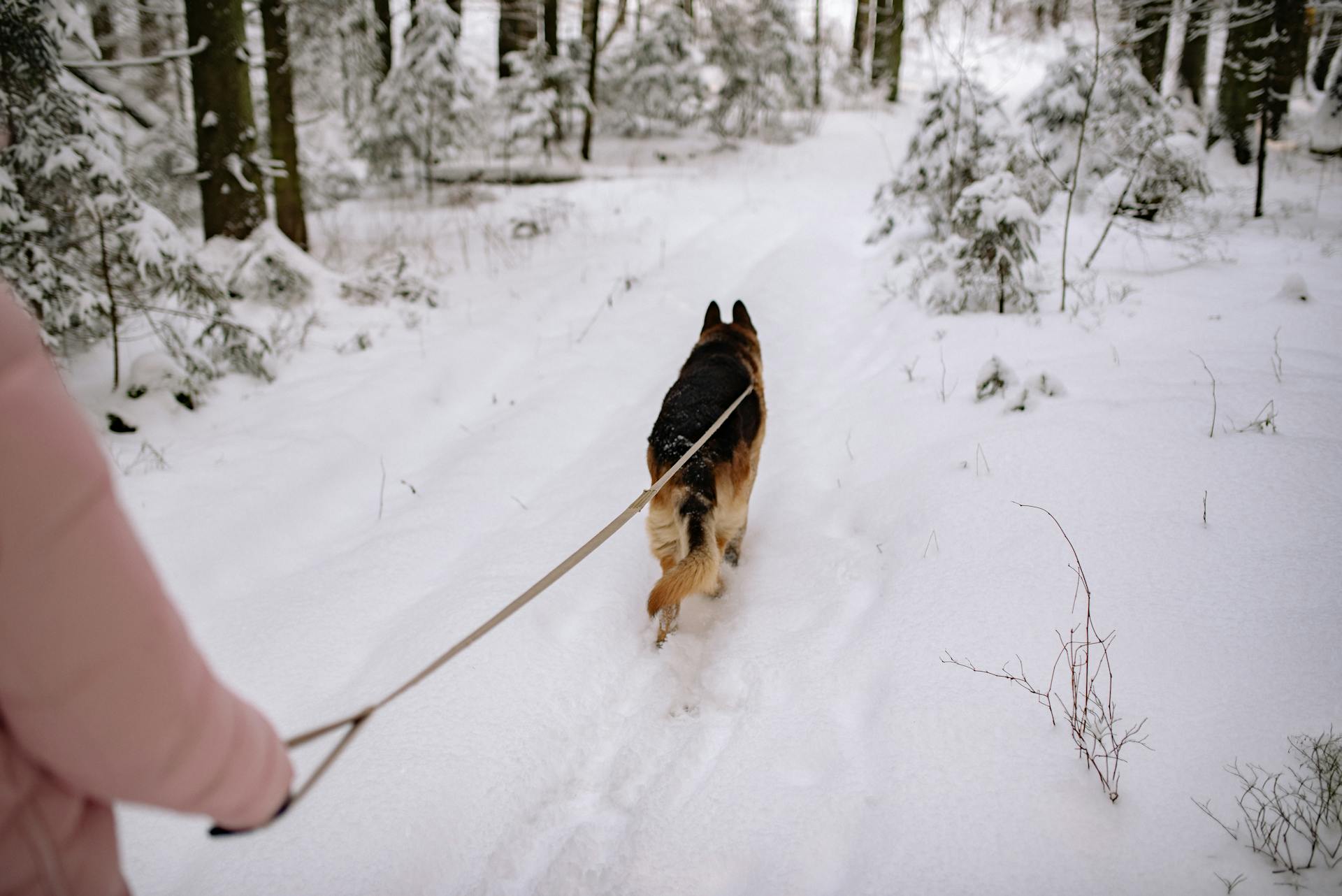
To keep your Dutch Shepherd happy and engaged, you should match their energy levels with regular exercise. They love to run, so an exercise like Frisbee will be much appreciated. In fact, they're built for running, endurance, and speed, and will keep pace with you on long treks.
One to two hours of exercise each day is recommended, which could include a long stroll and/or dog sports like catch or fetch, and some time puzzle time to burn off all that energy. Dutch Shepherds also need mental stimulation, which can be provided through games, puzzles, or training.
Here are some fun activities you can do with your Dutch Shepherd:
- Agility courses
- Nose work
- Dock diving
- Water retrieving
- Frisbee/disc dog competitions
- Herding trials
- Farm work
- Tracking
- Flyball
- Hiking
- Running
- Interactive puzzle toys
Dutch Shepherds are working dogs with a ton of energy, so long walks twice per day are a requirement. If you don't give your Dutch Shepherd enough stimulation, they can become anxious, destructive, and hyperactive, which can make them disruptive.
Training
Dutch Shepherds are one of the smartest dog breeds, so they pick up training cues quickly and enjoy learning.
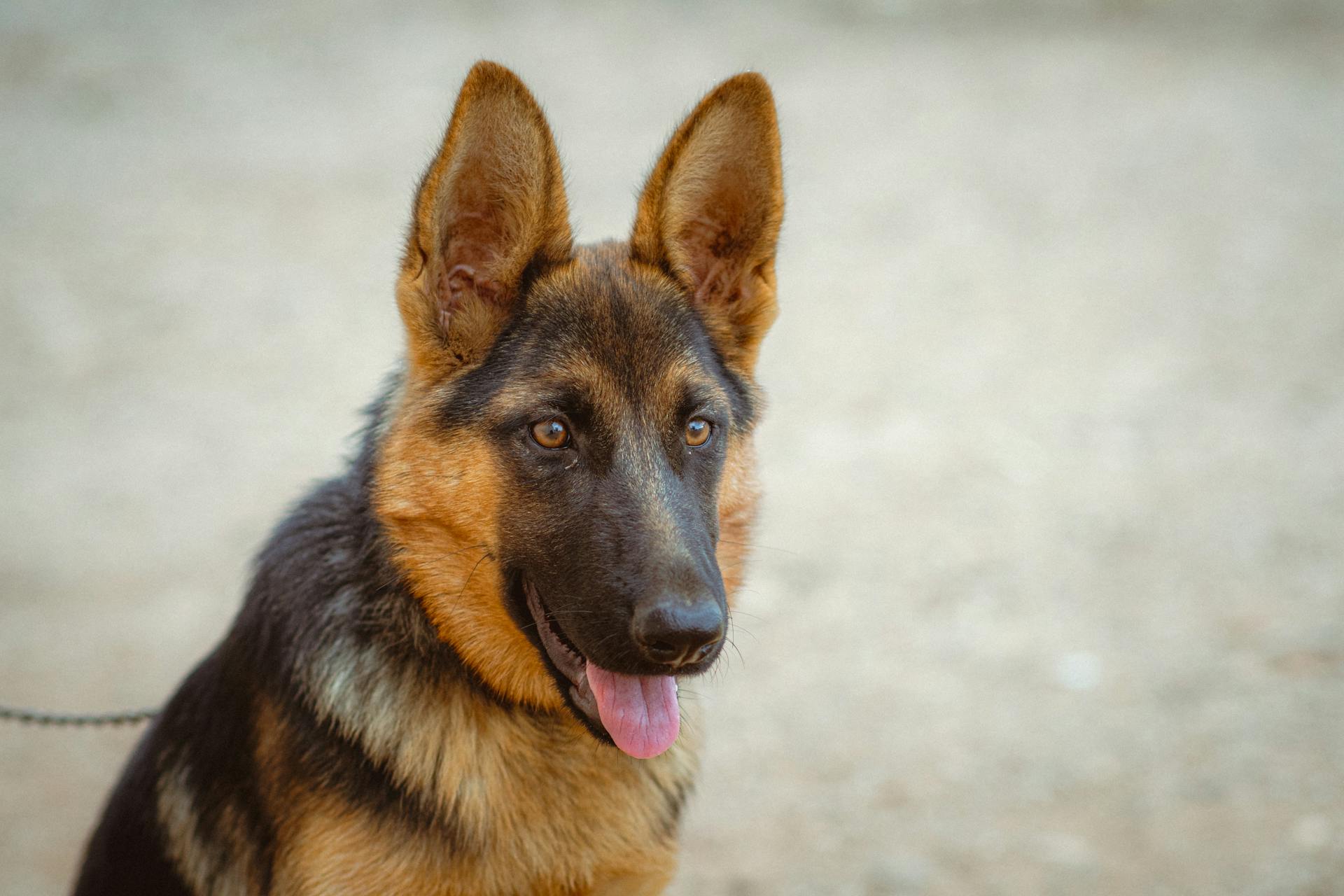
Training should start early and be ongoing, with a focus on positive reinforcement and socialization to channel their natural guarding instincts appropriately.
These dogs excel at following directions and are eager to please their families, making them highly trainable.
Short, active training sessions are best for this intelligent breed to keep them engaged and eager to learn.
Dutch Shepherds are quick-witted and driven to learn, and that makes for a highly trainable breed.
Consistent training with a goal is best for Dutch Shepherds, and it's essential to have a stronger willpower than your dog to ensure they remain on your prescribed training path.
Regular exercise and mental stimulation are crucial to sustain focus and deter boredom-related issues during training.
Collaborating with a skilled trainer who is familiar with working dogs can address breed-specific training needs and deliver better results.
Dutch Shepherds excel in training that tests their intelligence, physical prowess, and strong work ethic.
Socialization is also recommended for Dutch Shepherds, especially because they can be vigilant and hyper when they are young.
Worth a look: When Is Best Time to Breed Dog
Positive reinforcement and consistency are key to success in training a Dutch Shepherd.
These dogs were originally bred to herd sheep, but they performed a variety of jobs on Dutch farms, including herding and protecting chickens, pulling milk carts, and alerting rural homes to the presence of animals or people.
With patience and the right approach, you can help your Dutch Shepherd become a well-behaved and loyal companion.
Diet and Nutrition
Diet and Nutrition is a crucial aspect of training your Dutch Shepherd. A high-quality and appropriately portion-controlled diet is essential for your dog's overall health and well-being.
You'll want to feed your Dutch Shepherd a food higher in protein if they're leading an active lifestyle. This can help build muscle and sustain them throughout the day.
Adult Dutch Shepherds typically need up to 4 cups of food per day, split between two meals. Your veterinarian can guide you on the correct amount of food for your dog based on their age, size, activity level, and the specific food you're providing.
A different take: Best Food for Border Collies
Look for a high-protein dog food that meets the nutritional standards of the Association of American Feed Control Officials. This will ensure your dog is getting the necessary nutrients to thrive.
Treats are also an important consideration when training your Dutch Shepherd. Be mindful of the number of fatty dog treats you're giving your dog each day, as these calories can add up quickly.
Here are some general guidelines for treats:
- Treats should be nutrient-rich and low in calories.
- Limit treats to 10% of your dog's daily calorie intake.
- Choose treats that are low in fat and high in fiber.
Remember to consult with your veterinarian if you're concerned about your dog's weight or overall health. They can help you develop a meal and exercise plan tailored to your dog's specific needs.
Health and Temperament
The long-haired Dutch Shepherd is generally a healthy breed with a lifespan of 11 to 14 years. They are prone to hip and elbow dysplasia, which can be a painful and serious issue if left untreated.
Dutch Shepherds are also sensitive to anesthesia, so it's essential to work with a reputable breeder who has performed diagnostic screenings on their parents to check for these conditions. Regular exercise, a balanced diet, and regular veterinary check-ups can help prevent or manage these health issues.
In terms of temperament, Dutch Shepherds are intelligent, loyal, and high-energy dogs that thrive with lots of mental stimulation and exercise. They are naturally protective of their family but can be socialized to be comfortable around strangers, children, and other animals.
Temperament & Intelligence
Dutch Shepherds are highly intelligent dogs that thrive on mental stimulation and exercise. They're used to working outside all day, so they have tons of energy.
These dogs are naturally vigilant and will bark at new people or anything out of place. Their intelligence and hardy nature can also make them stubborn and obstinate at times.
Dutch Shepherds are affectionate, steadfast, and loyal dogs that form strong attachments with their family. They're great with kids and other dogs, but proper socialization is key to ensure they're well-mannered around strangers.
Their intelligence and trainability make them a top-notch breed for police and military work, as well as service dogs. Dutch Shepherds can switch gears quickly, going from a focused work mode to a playful, friendly dog in an instant.
A fresh viewpoint: Seresto Work
Here's a breakdown of their temperament traits:
These dogs are happiest when they're with their family and engaged in activities that challenge their minds and bodies. With proper care and attention, Dutch Shepherds can thrive as beloved pets and loyal companions.
Health and Conditions
Dutch Shepherds are generally a healthy breed, with a lifespan of 11 to 14 years. They're known for being energetic and athletic, but like any breed, they can be prone to certain health issues.
Hip dysplasia is a common problem in Dutch Shepherds, which can lead to arthritis and joint pain as they age. It's essential to work with a reputable breeder who has had their breeding dogs tested for hip dysplasia.
In addition to hip dysplasia, Dutch Shepherds can also be sensitive to anesthesia. This means that if your dog needs surgery, you'll need to work closely with your veterinarian to find a safe and effective anesthesia plan.
Additional reading: Hip Problems in Border Collies
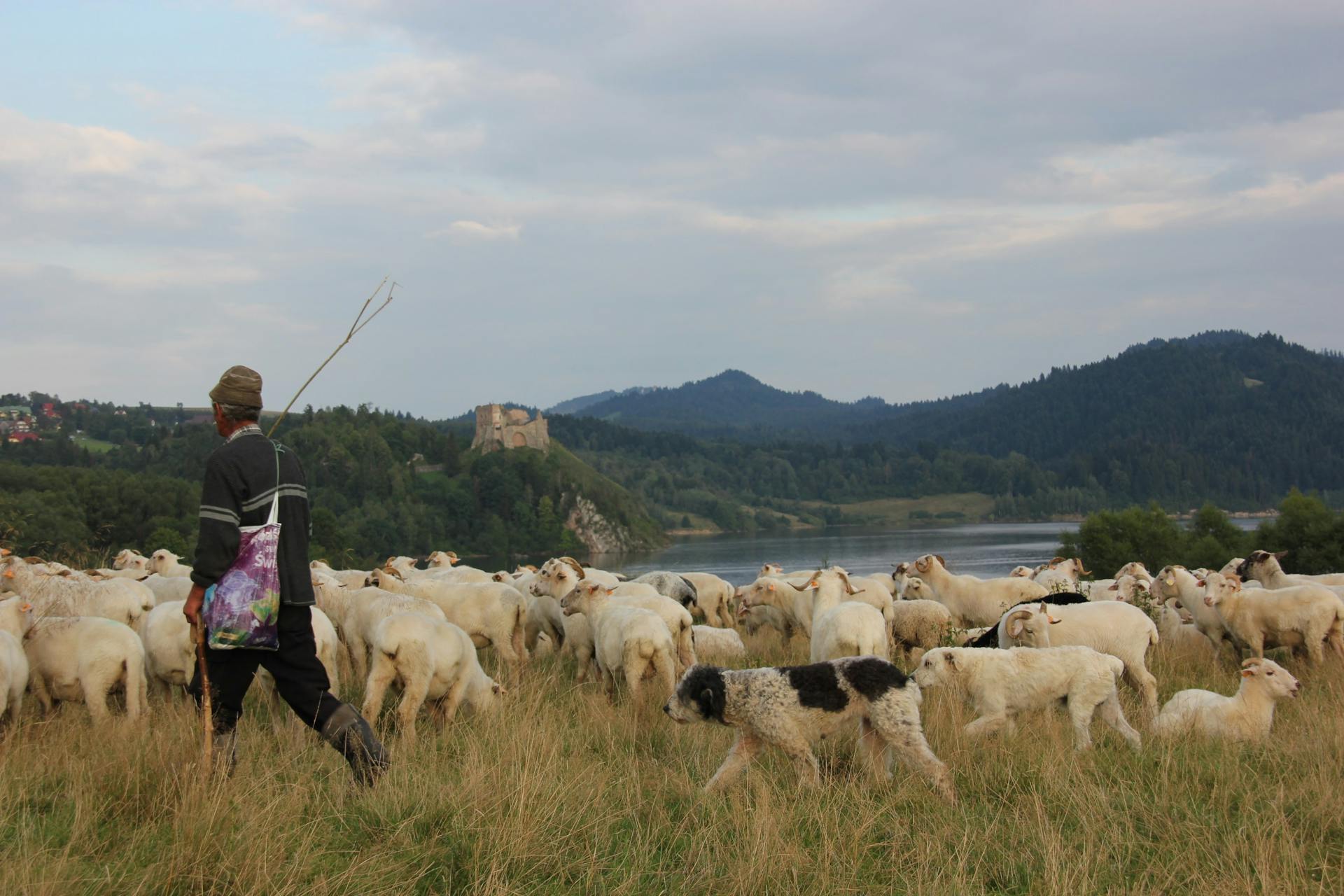
If you have a long-haired Dutch Shepherd, you'll want to keep an eye out for thyroid problems. These can be caused by genetics and can lead to symptoms like weight gain, hair loss, and lethargy. Regular screenings with your vet can help detect and treat these issues early on.
Goniodysplasia, a form of glaucoma, can also affect Dutch Shepherds, particularly those with rough-haired coats. This condition can lead to vision loss if left untreated, so it's essential to work with your vet to develop a treatment plan.
Here are some common health issues to watch out for in Dutch Shepherds:
- Hip dysplasia
- Elbow dysplasia
- Thyroid problems
- Goniodysplasia (glaucoma)
Pros and Cons
The Long Haired Dutch Shepherd is a wonderful breed, and one of its greatest advantages is that it's a family-friendly dog. They're perfect for households with kids.
One of the reasons they're so great with families is because they're intelligent, highly trainable, and eager to please. This means they can learn to behave well and follow commands with ease.
They're also a relatively healthy breed, with few inheritable conditions.
Frequently Asked Questions
What are the four types of Dutch shepherds?
The Dutch Shepherd breed comes in four coat varieties: smooth, long, rough, and inter-varieties. These coat types offer a range of options for dog owners and enthusiasts.
How rare are Dutch shepherds?
The Dutch Shepherd is a relatively rare breed, with efforts being made to increase its population and diversify its gene pool. Despite being rare, the breed is still actively encouraged by the Dutch Breed Club for responsible breeding.
Do Dutch shepherds have short hair?
Yes, Dutch Shepherds can have a short-hair coat, which is hard, close-fitting, and has a visible ruff, breeches, and tail plume. This coat type is one of three possible coat types found in the breed.
Is a Dutch Shepherd a good dog?
Yes, the Dutch Shepherd is a loyal and competent breed, making them a great companion for active families and individuals. They excel in various roles, from herding and obedience to search and rescue.
Featured Images: pexels.com
